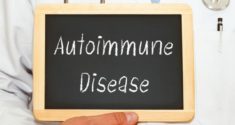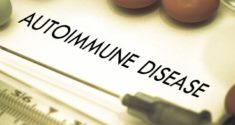An increase in nightmares and hallucinations – or daydreaming – could herald the onset of autoimmune diseases such as lupus, according to an international team led by researchers from the University of Cambridge and King’s College London. The researchers argue that there needs to be better recognition that these types of mental and neurological symptoms can be an early warning sign that a person is approaching a “flare”, where their disease worsens for a period of time.
How Dreams and Autoimmune Diseases are Connected
In a study published in eClinicalMedicine, the researchers surveyed 676 lupus patients and 400 clinicians. They also conducted in-depth interviews with 69 people living with systemic autoimmune rheumatic diseases (including lupus) and 50 clinicians. Lupus is an inflammatory autoimmune disease known for its effects on many organs, including the brain. As part of the study, the team also asked patients about the timing of onset of 29 neurological and psychological symptoms (such as depression, hallucinations and balance problems). In interviews, they were also asked if they could list the order in which the symptoms usually occurred when their illness broke out.

Interviewers in the study found that using the term “daydreaming” for hallucinations often led to an “aha” moment for patients, who felt that it was a less frightening and stigmatized word. Patients suffering from hallucinations were reluctant to share their experiences and many professionals stated that they had never considered nightmares and hallucinations as a cause of episodes of illness. Most stated that they would talk to their patients about nightmares and hallucinations in the future, as they believe that recognizing these early symptoms can provide an “early warning system” that allows them to improve treatment and even reduce clinic times by preventing an episode at an earlier stage.
Better Monitoring of Serious Illnesses
According to the study’s lead author, Dr. Melanie Sloan of the University of Cambridge’s Department of Public Health and Primary Care, it’s important that doctors talk to their patients about these types of symptoms and take the time to write down each patient’s individual progression of symptoms. Patients often know which symptoms are a bad sign that their disease is about to break out, but both patients and doctors are often reluctant to talk about psychological and neurological symptoms, especially if they don’t know that they may be part of an autoimmune disease. The importance of recognizing these symptoms has been underscored by reports that some patients were initially misdiagnosed or even hospitalized with a psychotic episode and/or suicidal thoughts, which only later turned out to be the first sign of their autoimmune disease.
According to Professor Guy Leschziner, study author and neurologist at Guys’ and St Thomas’ Hospital and author of the book The Secret World of Sleep, it has long been clear that changes in dreaming can indicate changes in physical, neurological and mental health, and can sometimes be early indicators of disease. However, this is the first evidence that nightmares can also help monitor an autoimmune disease as serious as lupus, and is an important reminder to patients and doctors alike that sleep symptoms can inform of an impending relapse.







